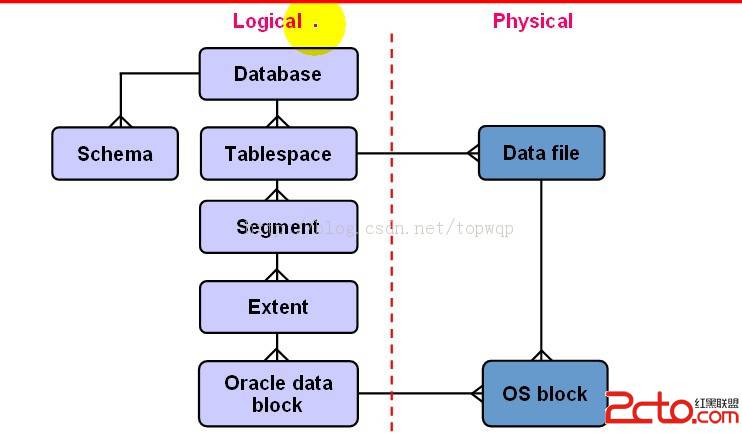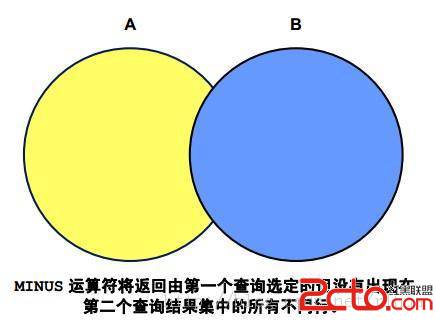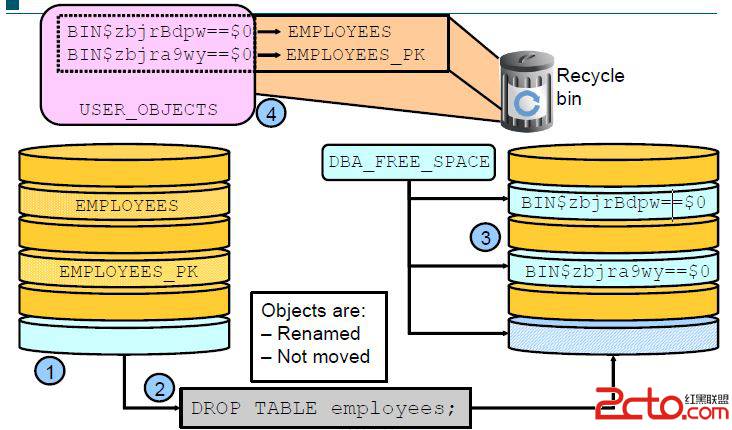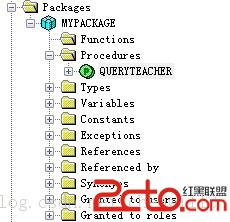Oracle数据库游标的类型
Oracle数据库游标的类型
游标是SQL的一个内存工作区,由系统或用户以变量的形式定义。游标的作用就是用于临时存储从数据库中提取的数据块。
Oracle数据库的Cursor类型包含三种: 静态游标:分为显式(explicit)游标和隐式(implicit)游标;REF游标:是一种引用类型,类似于指针。
--测试数据
create table student(sno number primary key,sname varchar2(10));
declare i number:=1;
begin
while i<=50
loop
insert into student(sno,sname) values (i,'name'||to_char(i));
i:=i+1;
end loop;
end;
隐式游标属性:
SQL%ROWCOUNT 整型代表DML语句成功执行的数据行数。
SQL%FOUND 布尔型值为TRUE代表插入、删除、更新或单行查询操作成功。
SQL%NOTFOUND 布尔型与SQL%FOUND属性返回值相反。
SQL%ISOPEN 布尔型DML执行过程中为真,结束后为假。
declare
begin
update student set sname ='name'||to_char(sno*10) where sname='name80';
if sql%found then
dbms_output.put_line('name is updated');
else
dbms_output.put_line('没有记录');
end if;
end;
declare
begin
for names in (select * from student) loop
dbms_output.put_line(names.sname);
end loop;
exception when others then
dbms_output.put_line(sqlerrm);
end;
显式游标属性:
%ROWCOUNT 获得FETCH语句返回的数据行数。
%FOUND 最近的FETCH语句返回一行数据则为真,否则为假。
%NOTFOUND 布尔型 与%FOUND属性返回值相反。
%ISOPEN 布尔型 游标已经打开时值为真,否则为假。
对于显式游标的运用分为四个步骤:
a 定义游标 --- Cursor [Cursor Name] IS;
b 打开游标 --- Open [Cursor Name];
c 操作数据 --- Fetch [Cursor name];
d 关闭游标 --- Close [Cursor Name];
典型显式游标:
declare cursor cur_rs is select * from student;
sinfo student%rowtype;
begin
open cur_rs;
loop
fetch cur_rs into sinfo;
exit when cur_rs%%notfound;
dbms_output.put_line(sinfo.sname);
end loop;
exception when others then
dbms_output.put_line(sqlerrm);
end;
带参数open的显式cursor:
declare cursor cur_rs(in_name varchar2) is select * from student where sname=in_name;
begin
for sinfo in cur_rs('sname') loop
dbms_output.put_line(sinfo.sname);
end loop;
exception when others then
dbms_output.put_line(sqlerrm);
end;
使用current of语句执行update或delete操作:
declare
cursor cur_rs is select * from student for update;
begin
for sinfo in cur_rs loop
update student set sname=sname||'xx' where current of cur_rs;
end loop;
commit;
exception when others then
dbms_output.put_line(sqlerrm);
end;
REF游标,用于处理运行时才能确定的动态sql查询结果,利用REF CURSOR,可以在程序间传递结果集(一个程序里打开游标变量,在另外的程序里处理数据)。
也可以利用REF CURSOR实现BULK SQL,提高SQL性能。
REF CURSOR分两种,Strong REF CURSOR 和 Weak REF CURSOR。
Strong REF CURSOR: 指定retrun type,CURSOR变量的类型必须和return type一致。
Weak REF CURSOR: 不指定return type,能和任何类型的CURSOR变量匹配。
运行时根据动态sql查询结果遍历:
create or replace package pkg_test01 as
type student_refcursor_type is ref cursor return student%rowtype;
procedure student_rs_loop(cur_rs IN student_refcursor_type);
end pkg_test01;
create or replace package body pkg_test01 as
procedure student_rs_loop(cur_rs IN student_refcursor_type) is
std student%rowtype;
begin
loop
fetch cur_rs into std;
exit when cur_rs%NOTFOUND;
dbms_output.put_line(std.sname);
end loop;
end student_rs_loop;
end pkg_test01;
declare stdRefCur pkg_test01.student_refcursor_type;
begin
for i in 10..50 loop
dbms_output.put_line('Student NO=' || i);
open stdRefCur for select * from student where sno=i;
pkg_test01.student_rs_loop(stdRefCur);
end loop;
exception when others then dbms_output.put_line(sqlerrm);
close stdRefCur;
end;
使用FORALL和BULK COLLECT子句。利用BULK SQL可以减少PLSQL Engine和SQL Engine之间的通信开销,提高性能。
1.加速INSERT, UPDATE, DELETE语句的执行,也就是用FORALL语句来替代循环语句。
2.加速SELECT,用BULK COLLECT INTO 来替代INTO。
create table student_tmp as select sno,sname from student where 0=1; --删除主键约束 alter table student drop constraint SYS_C0040802; --执行两遍插入 insert into student select * from student where sno=50; declare cursor cur_std(stdid student.sno%type) is select sno,sname from student where sno=stdid; type student_table_type is table of cur_std%rowtype index by pls_integer; student_table student_table_type; begin open cur_std(50); fetch cur_std bulk collect into student_table; close cur_std; for i in 1..student_table.count loop dbms_output.put_line(student_table(i).sno || ' ' || student_table(i).sname); end loop; forall i in student_table.first..student_table.last insert into student_tmp values(student_table(i).sno, student_table(i).sname); commit; end; --清理实验环境 drop table student purge; drop package pkg_test01;





